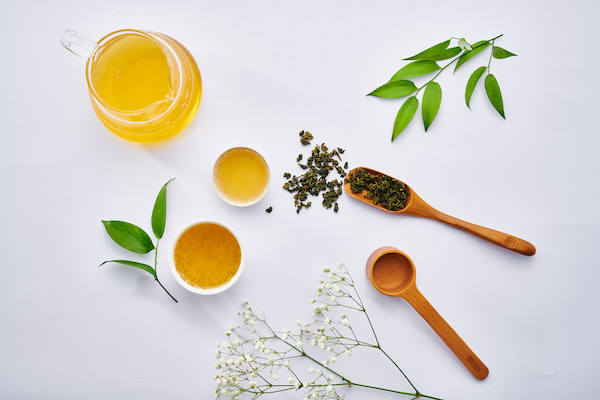Chinese Oolong tea has been cultivated for centuries in China’s Fujian, Guangdong, and Wuyi Mountain regions. Known for its rich cultural heritage, Chinese Oolong tea offers a refined drinking experience that appeals to tea lovers seeking both complexity and depth.
The traditional processing methods used to craft Chinese Oolong tea, including partial oxidation and careful roasting, give it a distinctive profile that makes each variety special. Beyond its captivating taste, Chinese Oolong tea is also revered for its potential health benefits, making it a staple in Chinese culture and tea ceremonies.
What is Chinese Oolong Tea Good for?
Chinese Oolong tea is not only a delight for the senses but also offers several health benefits. Here are some key advantages of including Chinese Oolong tea in your daily routine.
Weight Management
Oolong tea has been shown to enhance metabolism and fat oxidation. Research suggests that the polyphenols in Oolong tea can help boost your body's ability to burn fat, making it an excellent complement to a balanced diet and regular exercise. The caffeine content in Oolong also provides a mild boost in energy, which can support physical activity.
Digestion Improvement
Oolong tea is known to aid digestion, particularly after heavy meals. Its soothing properties help calm the stomach, making it a popular choice in Chinese culture as a post-meal beverage. The warm, slightly astringent nature of Oolong can ease digestion and prevent bloating.
Mental Alertness and Relaxation
One of the unique benefits of Oolong tea is its ability to provide relaxation. While it contains caffeine, the presence of L-theanine helps create a calming effect, reducing stress without causing drowsiness. This makes Oolong tea a great option for enhancing focus and concentration while staying relaxed.
Types of Chinese Oolong Tea
Chinese Oolong tea comes in a variety of types, each offering its own distinct flavor profile and processing methods. Here are some of the most well-known types of Chinese Oolong tea:
Tie Guan Yin
Originating from the Fujian province, Tie Guan Yin is one of the most famous and beloved varieties of Oolong tea. It is a lightly oxidized tea known for its floral aroma and sweet, creamy texture. When brewed, it often exhibits notes of orchid or honeysuckle, making it a refreshing choice for those who enjoy light, delicate teas.
Da Hong Pao
Grown in the Wuyi Mountains, Da Hong Pao is a heavily oxidized and roasted Oolong with a rich, bold flavor. This tea is known for its complex profile, often featuring hints of roasted nuts, chocolate, and even stone fruits. Da Hong Pao is highly prized, both for its taste and historical significance, with some of the original bushes being considered national treasures in China.
Shui Xian
Another tea from the Wuyi Mountains, Shui Xian is a heavily roasted Oolong with a dark, rich flavor. This tea has a woody, floral taste with hints of honey and roasted nuts, making it a favorite among those who enjoy darker, stronger teas.
Chinese Oolong tea is a wonderful journey of flavors and traditions, offering something for every palate. Whether you seek light floral notes or deep-roasted complexity, there’s an Oolong tea for every tea lover to explore and enjoy.
